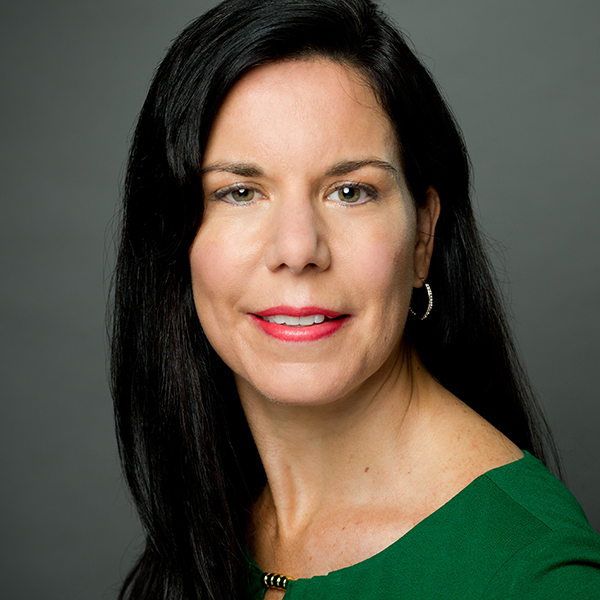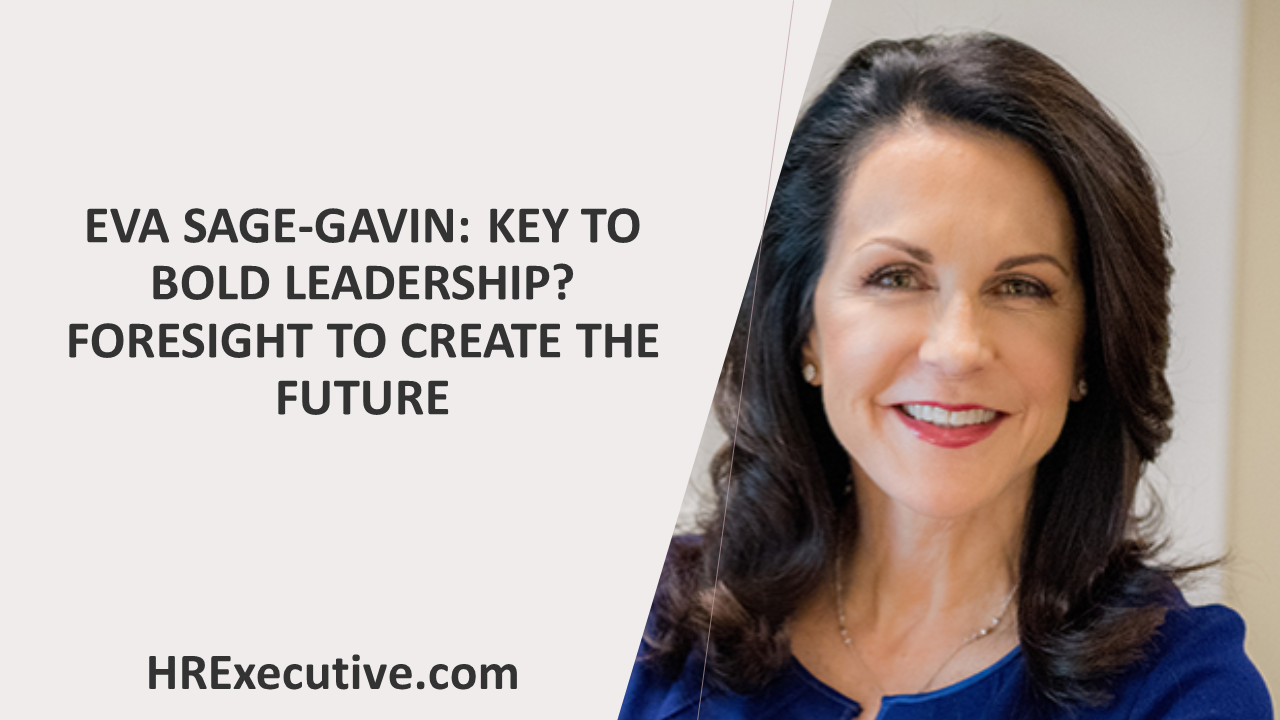Holly Paul, chief HR officer at FTI Consulting, is a big believer in servant leadership—an approach that centers empathy, understanding and an investment in people first. It’s a model that she says benefitted her own career.
After earning a bachelor’s degree in anthropology and accounting, Paul joined the PwC accounting team. She worked with a sponsor who helped her develop her interests and ultimately was able to move through several groups at PwC, developing those interests. After taking on an internal operations role, her passion for HR was solidified.
“Ultimately, the ability for me to move my career in a different direction motivated me to think about ways to help others achieve their goals, whether that is advancing along their current path or identifying other interests to pursue,” she says.
Paul spent nearly 12 years with PwC and went on to become CHRO of PR software company Vocus before joining FTI, a global business advisory firm, in 2014. Paul recently shared with HRE more about her career journey.
HRE: What has been the biggest shift in HR’s focus during your time at FTI Consulting?

Paul: In the early part of its history, FTI Consulting was a company focused on acquisition-driven growth. Under the leadership of Steve Gunby, who joined us as president and chief executive officer in 2014, the firm began to shift to an organic growth-driven strategy. This means that instead of growing through acquiring other firms, we would seek to attract, develop, retain and promote top talent.
We have seen that shift play out over the past eight years. Our headcount is up from more than 4,000 employees globally in 2014 to more than 7,000 today—the vast majority of that as a result of our focus on organic growth. For example, we announced 33 senior managing director and managing director hires in the second quarter of 2022, which, on average, is an increase of 50% over levels of the past four years. We are preparing to welcome our largest class of campus hires ever in the fall, which reflects our commitment to build our presence on campuses and enhance the core source of organic growth, which is hiring great people at the most junior levels and developing them as they move up through the ranks.
Our success in these hiring efforts is critical because reaching the bold growth aspirations that we have requires attracting and retaining great people.
HRE: On what fronts is the organization confronting the so-called Great Resignation?
Paul: Throughout the COVID-19 pandemic, we stayed the course and continued to hire and grow our organization and develop our people’s careers. We are a people-focused business, and if we stopped investing in our people and our firm, it ultimately would harm us in the long term.
 It wasn’t just hiring that we continued through the pandemic. We continued our professional development programs, albeit virtually. This year, we have been thrilled to bring back our annual in-person Milestone Programs for newly hired and promoted professionals in each of our segments and regions. These are tremendous opportunities for our people, not only to learn the skills they need to succeed as they move through the organization but also to network with their peers and build connections that will enhance their professional and personal lives.
It wasn’t just hiring that we continued through the pandemic. We continued our professional development programs, albeit virtually. This year, we have been thrilled to bring back our annual in-person Milestone Programs for newly hired and promoted professionals in each of our segments and regions. These are tremendous opportunities for our people, not only to learn the skills they need to succeed as they move through the organization but also to network with their peers and build connections that will enhance their professional and personal lives.
Given the diverse nature of our business, we are able to support individuals within the firm as they take on new assignments or try a different career path. Our clients call on us when facing their most significant and complex issues—Issues that often make the headlines each day. These challenging engagements provide experience and growth opportunities for people at all levels of our firm. Our junior professionals are not knee-deep in mundane administrative tasks. They are getting hands-on experience working side-by-side with management teams from Fortune 1000 companies, leading law firms, government agencies and the preeminent experts in their fields. The totality of that experience is a unique differentiator for our people.
HRE: How do you personally aim to embody the principles of servant leadership at the organization?
Paul: Servant leaders see leadership as an opportunity to serve and develop others. They listen, and they understand it is not about them—it’s about their people and the organization. Leaders need to constantly ask how they can be a consistent servant leader, which can help retain high-performing talent and ultimately benefit the organization as a whole.
I try to put myself in others’ shoes and recognize where they are, what they are going through and what they may need in that moment. For example, someone may be dealing with a personal issue, so the question we ask is, “How can we move resources around and help take things on to provide support?” Or someone may be struggling in a certain role, but they have a passion that would be the perfect fit for another area of the company. Can we look for a way to put someone on a different career path based on their interests?
To do this, we need to be constantly engaging and coaching our people. I try to ensure I support individuals in what they need in both their personal lives and their work lives. The more support they feel, the more they can bring their full selves to work.
HRE: What impact has the Trusted Advisors Program had on internal mobility?
Paul: We launched the Trusted Advisors Program in early 2022. It is about ensuring employees have an advocate and coach so that they can understand what is important to them in their careers and fulfill their professional development while motivating and engaging them. We want people to be involved in engaging and meaningful work that produces positive results for them, their clients and the firm.
The program was created to provide people with a sense that there are others in their corner who have the ability to take action on their behalf. You could use the word “advocate,” but it really is about understanding where they are in their career development. We have six areas—workload, control, reward, community, fairness and values—for our senior managing directors, who are at the highest level of our firm, to focus on with individuals in the program to determine what may be working and identify where additional support may be needed. Then, the individual and their sponsor can develop an action plan together. This gives the individual a sense of ownership as well as the benefit of knowing that someone senior in the organization will support them along the way.
Having someone in senior leadership who can help guide important elements of a more junior person’s career can go a long way in developing trust and forming bonds between a person and an organization. Our hope is that these relationships and assignments continue regardless of the Great Resignation or any other external forces.
HRE: What is the best HR career advice you’ve ever been given?
Paul: I use this frequently with our junior professionals, and I think it is great advice: Take advantage of opportunities that may stretch you and make you uncomfortable. When you are uncomfortable and perhaps a bit anxious because you have never done it before, those are the moments where you learn and develop the most—both professionally and personally.
The post Why servant leadership makes the difference for this CHRO appeared first on HR Executive.